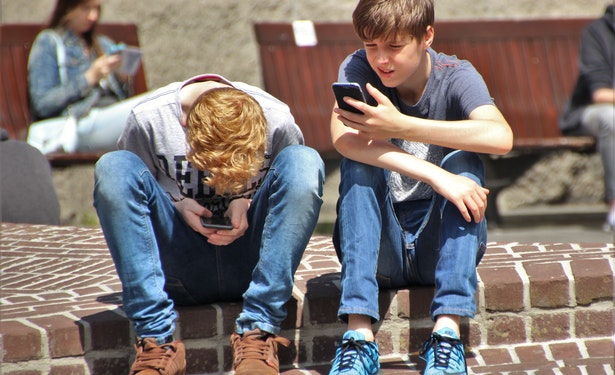Teenage Social Media Use Linked to Anxiety and Depression
Date: Sunday 20 Oct 2024
“For young people, the gap between evidence and policy is stark. We need large-scale cohort studies focusing on young persons’ mental wellbeing if we are to achieve change.”
Recent research from Oxford University highlights a strong connection between social media usage and increased anxiety and depression among teenagers. This study coincides with a notable rise in the number of children receiving treatment from NHS mental health services.
According to the findings, approximately 60% of individuals aged 16 to 18 spend two to four hours daily on social media platforms. John Gallacher, a professor of cognitive health leading the research, stated, “We found a linear relationship between higher rates of anxiety and depression and time spent networking on social media sites.” He noted that some young people reported spending as much as eight hours per day on these platforms.
The study also revealed that girls experience more mental health challenges than boys. The most popular social media platforms among teenagers include Instagram, Snapchat, TikTok, WhatsApp, and YouTube. Additionally, the research indicated that enhancing sleep and exercise could significantly benefit the mental wellbeing of this age group.
Official figures reveal that in the year ending March, 1.1 million children in England were in contact with NHS-funded services for mental wellbeing, learning difficulties, and autism. This number has more than doubled since 2016-17.
Over 7,000 teenagers participated in the initial phase of the study, with plans for about 50,000 young people aged 11 to 18 across the UK to be involved in the comprehensive study. This extensive research aims to track mental health trajectories over a decade, creating a “unique mental health map” of adolescents in the UK.

Official figures reveal that in the year ending March, 1.1 million children in England were in contact with NHS-funded services for mental wellbeing, learning difficulties, and autism. This number has more than doubled since 2016-17. Teenage girls are particularly affected, with around 20% of 16- and 17-year-old girls receiving treatment. Rates for primary-school children have also surged, with nearly 7% of girls and 11% of boys aged six to ten seen by NHS-funded services in 2023-24, compared to 3% and 6% five years earlier.
“Mental illness is the world’s leading public health challenge"
Gallacher emphasized the urgency of addressing mental illness, stating, “Mental illness is the world’s leading public health challenge. It has a devastating effect on economies because it affects many, tends to start young, and recur throughout life.” He pointed out that the lack of scientific understanding is a significant barrier. “For young people, the gap between evidence and policy is stark. We need large-scale cohort studies focusing on young persons’ mental wellbeing if we are to achieve change.”
To address this gap, Gallacher's team has initiated the BrainWaves study, in collaboration with Swansea University and The Day, an online news service for young people. The data from this study will be available to scientists worldwide, and the program will create lesson plans covering topics like coping with change, sleep, critical thinking, and stress.
The initial findings also highlighted the importance of “agency,” defined as the feeling of control over one’s actions and their outcomes. The study concluded that low agency correlates with high levels of anxiety and depression, while increased agency is associated with improved wellbeing and flourishing.

